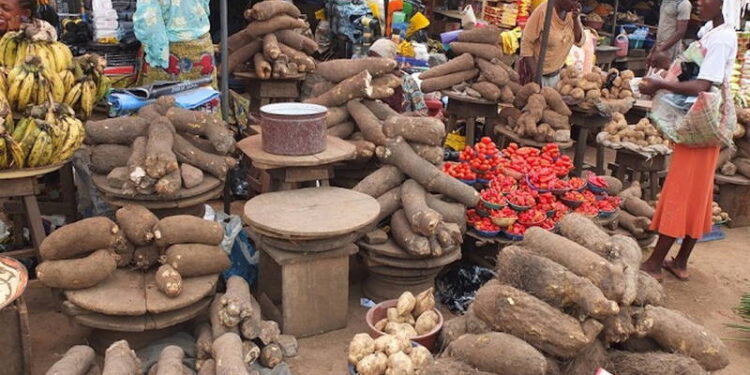Nigeria’s headline inflation rate has eased to 16.05% in October, according to the National Bureau of Statistics (NBS). This represents a decrease of 1.96% compared to the 18.02% recorded in September.
On a year-on-year basis, the headline inflation rate was 17.82% lower than the rate recorded in October 2024 at 33.88%.
The report attributed the increase in the headline index for October to the rise in prices of some items in the basket of goods and services at the divisional level.
The three major contributors to the headline inflation year-on-year were Food and non-alcoholic Beverages at 6.42%, Restaurants and Accommodation Services at 2.07%, and Transport at 1.71%.
Food inflation rate in October was 13.12% on a year-on-year basis, which was 26.04 percentage points lower compared to the rate recorded in October 2024 at 39.16%.
On a month-on-month basis, the food inflation rate in October was -0.37%, which increased by 1.27% compared to the 1.57% recorded in September.
The NBS also reported that core inflation, which excludes the prices of volatile agricultural produce and energy, stood at 18.69% in October 2025, on a year-on-year basis.
Urban inflation rate was 15.65% on a year-on-year basis, while rural inflation rate was 15.86%.
The report showed that Ekiti had the highest inflation rate on a year-on-year basis at 20.14%, followed by Nassarawa at 18.97%, and Zamfara at 18.81%. Bauchi had the slowest rise in headline inflation on a year-on-year basis at 9.99%.
The NBS recently rebased the Consumer Price Index (CPI), bringing the base year closer to the current period, from 2009 to 2024, with 2023 as the reference period for expenditure weights.









